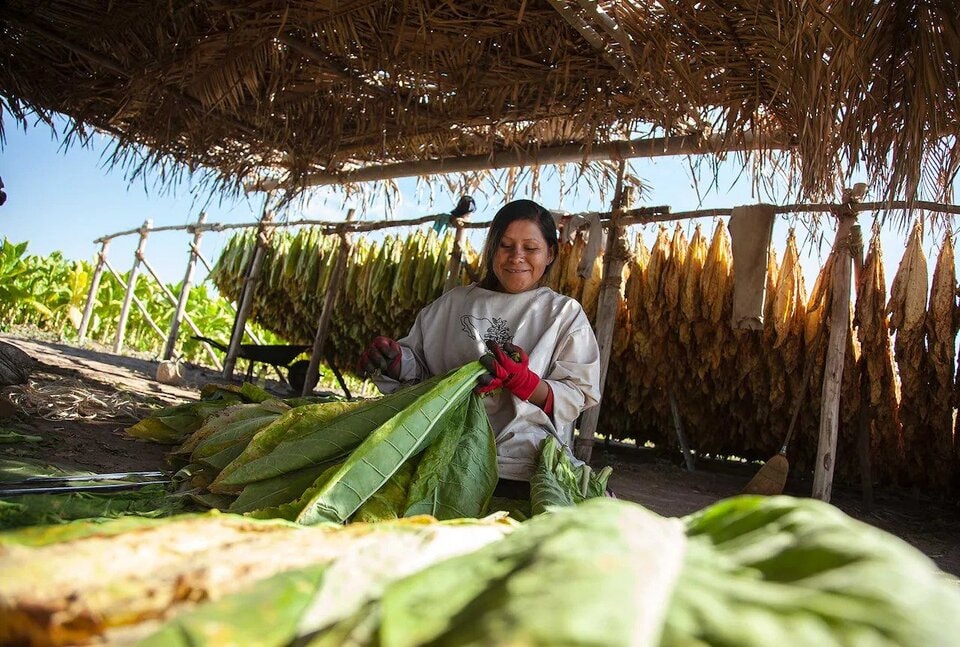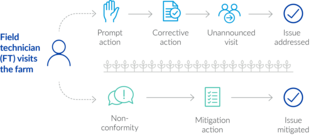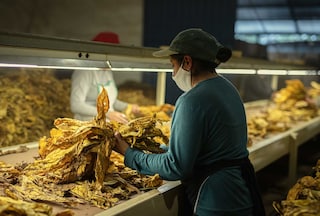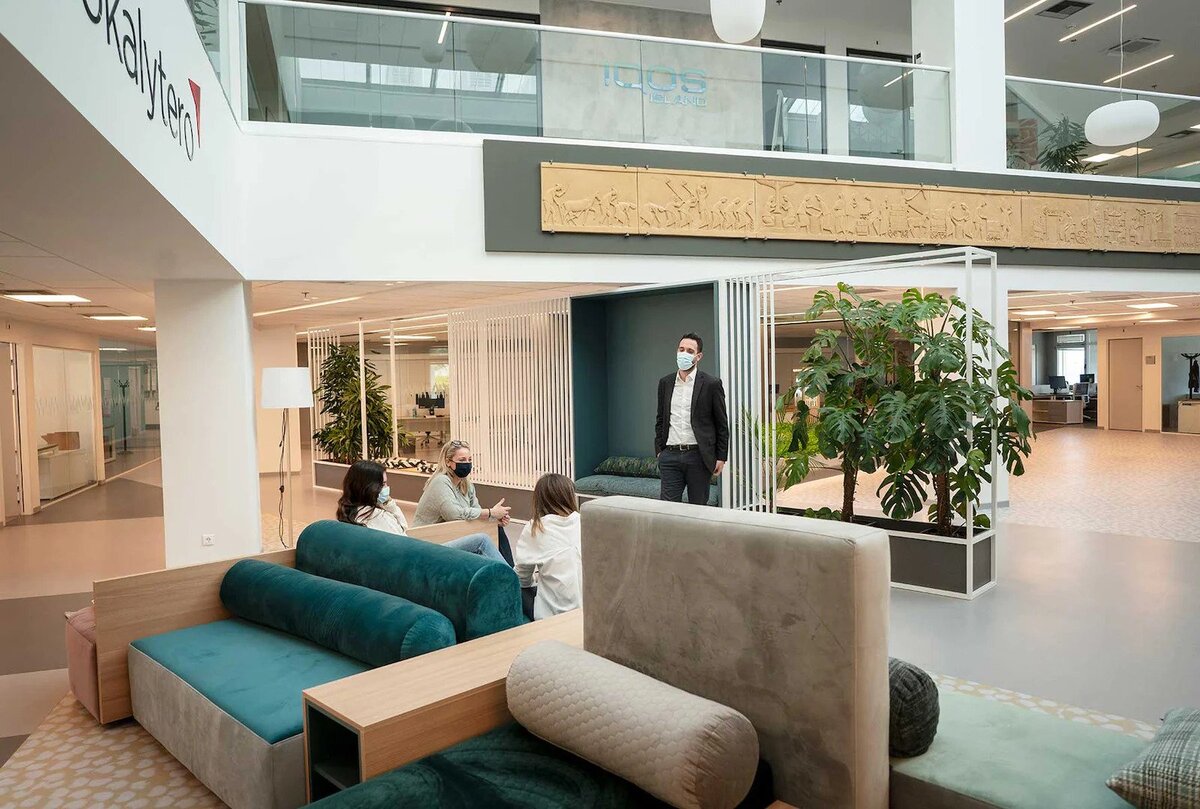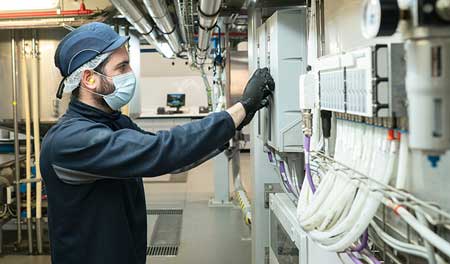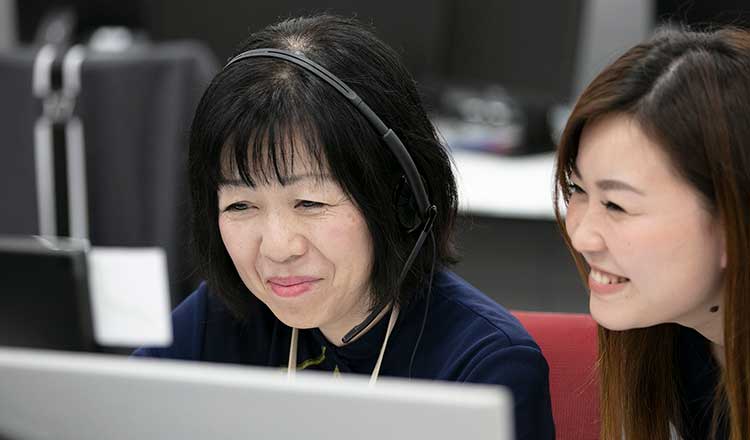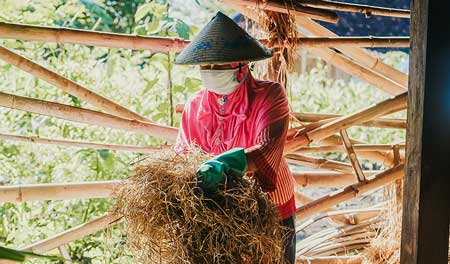| INTEGRATED REPORT 2020 |
The socioeconomic well-being of tobacco-farming communities depends on many factors, including the nation’s socioeconomic development, health and educational services, political stability, resilience to climate shocks, access to markets, and public infrastructure, as well as regulatory frameworks and their enforcement. If these factors are insufficiently developed, the population risks being locked in a cycle of systemic poverty, which, consequently, leads to poor working and living conditions, including the use of child labor.
Topic description
For PMI, safeguarding the socioeconomic well-being of tobacco-farming communities means improving their capacity to achieve a decent standard of living—a key enabler of eliminating child labor and providing safe and fair working conditions on tobacco farms. Our strategy aims to ensure that contracted farmers achieve a living income, as insufficient income is often the root cause of child labor and other social and environmental issues.
Socioeconomic well-being of tobacco-farming communities is a tier 1 topic within our strategic pillar Caring for the people we work with.

Our progress in 2020
read more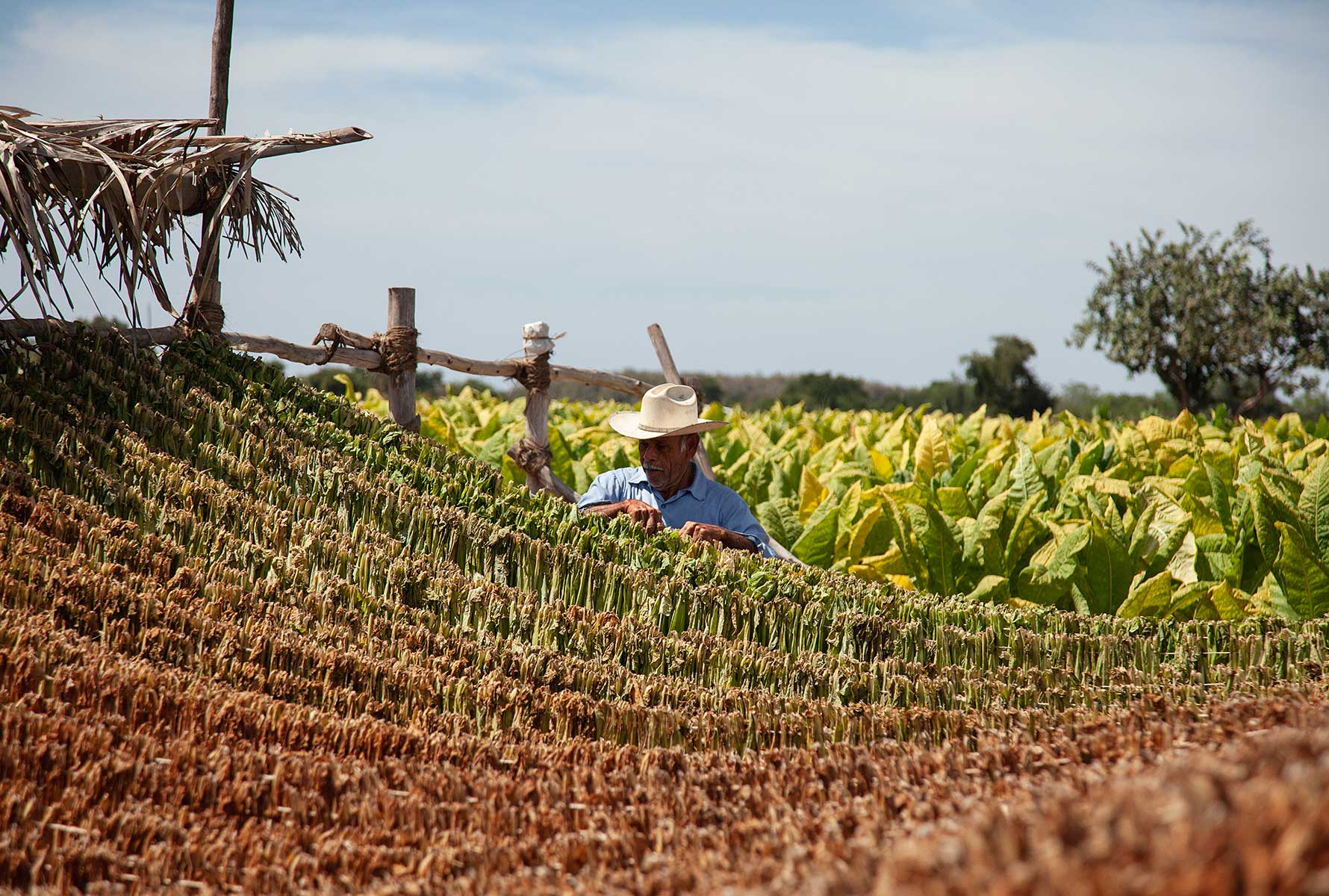
The right thing to do
Child labor and other labor abuses are unacceptable to PMI. They raise ethical, social, and legal issues, including potential human rights violations, as well as reputational risk. As a global business sourcing tobacco from 23 countries, we have a role to play in addressing systemic issues such as poverty and other social issues such as child labor, forced labor, and human trafficking that are resulting from it.
Poverty prevents farming communities from achieving acceptable levels of socioeconomic well-being and hinders their economic development. It leads to labor abuses and exacerbates the risk of child labor on tobacco farms because farmers may be unable to hire workers or afford school costs for their children, resulting in them keeping their children home to work on the farm. Child labor affects an estimated 150 million children worldwide,1 with the vast majority found in agriculture. It prevents children from getting a proper education, participating in the development of their communities, and fulfilling their potential.
Agricultural development can stimulate economic development outside of the agricultural sector, and lead to alleviating poverty, thereby preventing human rights issues and contributing to higher job and growth creation. Increased productivity of agriculture raises farm incomes, increases food supply, reduces food prices, and provides greater employment opportunities in both rural and urban areas.
1International Labour Office—Global Estimates of Child Labour, Results and trends 2012-2016 (wcms_575499.pdf (ilo.org))
The business case
Our business can have a significant socioeconomic impact on people, which is a major predictor of success, especially in the long term. By creating jobs, training workers, building physical infrastructure, procuring raw materials, transferring technology, paying taxes, and expanding access to products and services ranging from food and healthcare to energy and information technology, our company affects people’s assets, capabilities, opportunities, and standards of living. Their growth and well-being matter to the bottom line. If done right, agriculture can contribute to poverty reduction beyond a direct effect on farmer’s incomes. We have found that farmers who make a decent living from growing tobacco among other crops or other income-generating activities are more likely to think long term, apply good agricultural practices, and send their children to school. These are the farmers that PMI prefers to work with, because they ensure the continuity of a high-quality tobacco supply at reasonable cost. A successful farmer base also helps to prevent child labor and other labor abuses, minimizing the risk of import bans and reputational risk. By implementing targeted initiatives and by developing strong working relationships with farmers, suppliers, civil society, governments, industry, and other stakeholders, PMI can create net benefits for the economies and societies in which we operate—and mitigate reputational and operational risks.
Our aims:
100%
of contracted farmers supplying tobacco to PMI who make a living income by 2025
Zero
child labor in our tobacco supply chain by 2025
Achieving our aims
A principal aim of PMI is to provide a decent livelihood to all contracted farmers in its tobacco supply chain. This has been a focus since we introduced our Agricultural Labor Practices (ALP) program in 2011, supplemented by the ALP Step Change in 2018.
We are committed to the following set of targets to improve the socio-economic well-being of tobacco-farming communities:
- 100 percent of tobacco farmworkers to be paid at least the minimum legal wage by 2022
- 100 percent of contracted farmers supplying tobacco to PMI to make a living income by 2025
- Zero child labor in our tobacco supply chain by 2025
- 100 percent of contracted farmers supplying tobacco to PMI to have access to water by 2025
- 100 percent of contracted farmers supplying tobacco to PMI to have access to basic sanitation and hygiene by 2030
We had also committed to achieve by the end of 2020:
- 100 percent of tobacco farmworkers to be provided safe and adequate accommodation
- 100 percent of farmers and workers to have access to personal protective equipment (PPE) for the application of crop protection agents (CPA) and prevention of green tobacco sickness (GTS)
Our ALP Code, based on International Labour Organization (ILO) conventions and aligned with the United Nations Guiding Principles on Business and Human Rights, sets the principles and measurable standards applicable to all the contracted farmers from whom we source tobacco: No child labor, fair income and work hours, no forced labor and human trafficking, a safe work environment, fair treatment, freedom of association, and terms of employment. Our Sustainable Agriculture teams, suppliers, contracted farmers, and workers are regularly trained on the ALP Code. The ALP program is supported by related policies, such as our Good Agricultural Practices (GAP), Human Rights Commitment (HRC), and Responsible Sourcing Principles (RSP). We have a robust due diligence framework in place to evaluate the implementation of our ALP Code; this is enabled by the traceability at the farm level provided by our integrated production system.
Our approach comprises internal monitoring by field technicians, external comprehensive and focused assessments conducted by Control Union, and external verification by specialized third parties.

We are proud of the maturity and sophistication of PMI’s ALP program. To share our learning and solicit recommendations for improvement, we publish on our website quarterly ALP Progress Updates detailing our experiences throughout the year.
Monitoring of ALP implementation
Internal monitoring
Field technicians collect and update individual farm profile data at the start of each growing season and visit the farms throughout the season to evaluate, among other things, how well labor practices align with the principles of the ALP Code. Field technicians raise “prompt actions” to flag and trigger an immediate response to any serious ALP violation. They work with the farmer to develop a remediation plan to address these and any other non-conformities identified, which they then follow up on and monitor. If the matter is not resolved within the agreed timeline, it is further escalated and may lead to sanctions, which can include contract termination.
In 2020, we reinforced our risk-based approach in our farm-by-farm monitoring in order to strengthen the monitoring procedures and techniques to better identify risks and address them before they evolve into issues. The “non-conformities” are identified through interviews with multiple stakeholders or observations and are raised with the farmers. Their reporting helps us flag risks and proactively take action to mitigate them.
External assessments
Control Union (CU) conducts assessments to evaluate the management system in place for ALP implementation, reviewing prompt-action protocols and procedures to identify, record, and address issues, while also examining the internal capacity to implement the ALP program. CU also evaluates labor practices at the farm level, assessing compliance with the ALP measurable standards. Reports from CU are available on PMI.com. Under our Step Change approach, we are also implementing specific focused assessments to evaluate the management systems in place relating to the step-change priority areas, in addition to the farm-level assessment.
External verification
Specialized third parties verify our understanding of the progress being made on the ground, challenge our monitoring data, evaluate the effectiveness of our initiatives, and, ultimately, better assess our impact. We work with local expert partners in each geography.
We invite you to read our quarterly ALP Progress Updates.
We use a risk-based approach to identify, prevent, and mitigate incidents related to human rights and labor rights in our tobacco supply chain. For this undertaking, we collaborate with key stakeholders—such as suppliers, farmers and farmer associations, civil society organizations, academics, governments, and the private sector—to tackle more effectively persistent and systemic issues in the agricultural sector.
In 2018, we started a Step Change approach to our ALP program, focusing on four priority areas: eliminating child labor, ensuring payment of at least a minimum legal wage or agricultural benchmark standards, ensuring the availability and appropriate use of PPE, and ensuring adequate accommodation for all farmworkers. Step Change focuses on resolving the root causes of these persistent issues in priority countries—which we assess periodically—and is run in collaboration with our long-term strategic partner on the ALP program, Verité. In 2020, the program focused on Argentina, India, Indonesia, Malawi, Mexico, Mozambique, Pakistan, and Turkey due to the persistent nature of issues there. India was added in 2020 to the list of priority markets due to the complexities of challenges pertaining to gender inequality and the payment of minimum wages. Also in 2020, South Africa was removed after intensive work to address the issues identified there—particularly the accommodation provided to farmworkers—was externally validated to have been successful. A key component of the Step Change approach has been to enhance external assessments and verification to support our progress toward meeting our ambitious targets.
Our governance arrangements guide and facilitate this work. PMI’s Senior Vice President of Operations, a member of our Company Management, is accountable for our success in this area, while the operational responsibility lies with the head of our Leaf department. In each sourcing region, a management team oversees the implementation of ALP. A steering committee works closely with the dedicated local teams across our affiliates and suppliers.
Stakeholder engagement
Poverty and inadequate enforcement of labor legislation are some of the causes of child labor in agriculture. Stakeholders in the agricultural sector can play an important role to end this. In that regard, we realize that partnerships and multi-stakeholder engagement is paramount to advance our goals—during 2020, we participated in various events, such as seminars and conferences on the topic. For instance, we participated in the Sustainable Landscapes and Commodities Forum organized by the Innovation Forum and sponsored by the Global Agribusiness Alliance, discussing how agribusiness drives rural social and economic development. We also participated in the panel on leaf and sustainability during the virtual Global Tobacco and Nicotine Forum.
Moreover, PMI’s ongoing efforts to eliminate child labor on all farms that supply us with tobacco has been recognized by the World Business Council for Sustainable Development (WBCSD). The organization has included PMI as a “sector leader” case study in its new toolkit on advancing human rights policy and practice in the agribusiness sector.

Since the start of Step Change, we have solidified the approach and identified critical enablers to address the root causes of social issues in our tobacco supply chain. Improving the livelihoods of our contracted tobacco farmers is instrumental in preventing labor abuses. Accordingly, we deploy initiatives to improve income levels for our contracted farmers, support women in taking an active role in their households and communities, and ensure access to clean water, sanitation, and hygiene.
Since 2016, we have also participated in the industry-wide Sustainable Tobacco Program. (Read more on Sustainable supply chain management.) In 2019, we decided to consolidate a number
of initiatives, developed through GAP, ALP, and the industry-wide STP to support contracted farmers in improving their income levels and thus the livelihoods of their households. As we continue to expand and grow our Living Income program, our strategy will remain to focus on implementing more targeted, integrated, and localized initiatives which will best address the needs of our tobacco supply chain.
A gradual decrease in tobacco demand
One of the defining characteristics of sustainability is that it provides an opportunity for the explicit consideration of the trade-offs that are inherent in complex decision-making processes. As we often refer to our transformation and sustainability strategy indistinctively, tradeoffs in this regard become more evident as our business transformation progresses. We know that with the growth of our smoke-free business there is a simultaneous decline of our cigarette business, which translates into a gradual decrease of demand for tobacco leaf.
This means that, in some markets, we are reducing the volume of tobacco we purchase, or we are stopping our sourcing activities altogether. Such change has an undeniable impact on our contracted farmers, especially those whose main source of income would traditionally derive from tobacco growing.
We are committed to addressing and, to the extent we can, minimizing the negative effects of these trade-offs. We do this through a dedicated assessment of the unique realities and contingencies that define each country or region where we source tobacco, building an understanding of the local ecosystem to tailor and implement sustainable solutions that can help farmers transition to sustainable alternative livelihoods where needed.
In some cases, farmers are not heavily relying on tobacco production for their livelihoods or have the means to fairly easily switch to other crops, or they will continue growing tobacco as suppliers will continue purchasing their crops to fulfill other customers’ requirements. In other geographies, we provide additional support to help mitigate the negative impact of the reduction in our purchases.
Thanks to our partnership with Coltabaco, we completed a Project aimed to develop and increase commercial and product related capabilities with 1,380 farming families, who were fully dedicated to tobacco growing. Through these trainings, we identified 10 sustainable alternative crops that would allow the beneficiaries of the training to count with a solid base of income and, at the same time, continue their development in order to increase both their productivity and their ability to compete in the agribusiness sector. Thanks to this project, as well as our partnership with other institutions, these farmers will be able to continue developing to transition on to alternative sources of livelihood.
For instance, as of 2021 we are stopping our tobacco purchases in Colombia. The impact of such a decision was assessed well in advance, and since 2018, we have been developing and deploying a corresponding plan to help farmers bridge to viable economic models. More concretely, in 2018 and 2019, we funded diversification initiatives that provided farmers with corn seed packages and advice on the production of vegetable crops in home gardens, banana plantations, poultry production, and water tanks for fish production. Furthermore, in 2019 we rolled out two other initiatives, consisting of financial support as well as capacity building for the farmers. On the latter, we partnered with the local NGO, Proterritorio, which organized 50 workshops in the different farming communities. Around 1,370 farmers participated (i.e., all the farmers we contracted in the country to source tobacco from that year) and were provided with technical training sessions and financial education to help them design agricultural production projects.
More broadly, in the past years, we've introduced together with our suppliers a range of initiatives aimed at helping our contracted farmers make a living income by 2025. Under this program, we support the tobacco growers in eliminating farming inefficiencies. We also promote practices—such as mechanization and irrigation technologies—that not only allow them to improve productivity of the tobacco crop, but also help them diversify their production to other crops. In the coming years, we expect these efforts to play an important role in minimizing the potential negative economic impacts our transformation, and consequential reduction in demand of tobacco, may have on our current contracted farmers.

Our progress in 2020
read more
Performance metrics
view dataThis online content about our Integrated Report should be read in conjunction with PMI’s 2020 Integrated Report. The information and data presented here cover the 2020 calendar year or reflect status at December 31, 2020, worldwide, unless otherwise indicated. Where not specified, data come from PMI estimates. Please also refer to 'About this report' on page 3 of the 2020 Integrated Report for more information. Aspirational targets and goals do not constitute financial projections, and achievement of future results is subject to risks, uncertainties and inaccurate assumptions, as outlined in our forward-looking and cautionary statements on page 145. In the 2020 Integrated Report and in related communications, the terms “materiality,” “material,” and similar terms, when used in the context of economic, environmental, and social topics, are defined in the referenced sustainability standards and are not meant to correspond to the concept of materiality under the U.S. securities laws and/or disclosures required by the U.S. Securities and Exchange Commission.
